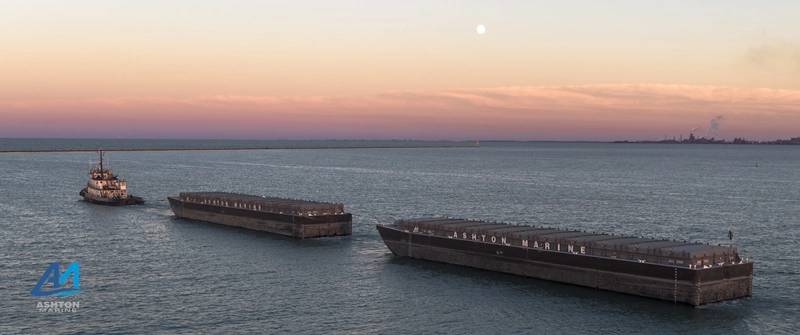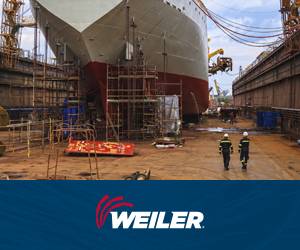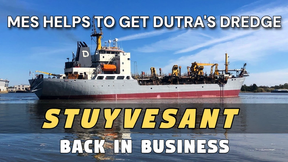SubM: The Coast Guard IS Still an Option
Not all towing vessel companies are choosing Third Party Organizations (TPOs) for their Subchapter M compliance option. One size does not fit all.
Under Subchapter M, towing vessel companies may opt to use TPOs to conduct their audits and surveys instead of inspections by the Coast Guard. While many companies are going the TPO route, many are opting for traditional Coast Guard inspections.
As a retired Coast Guard marine inspector, I have always advocated the Coast Guard option to our clients. There are no additional inspection costs, besides the annual Coast Guard inspection fees which all companies pay regardless of the compliance option. Additionally, a towing vessel company under the Coast Guard option does not have to operate according to a towing safety management system (TSMS). This does not mean that operating under a TSMS is a bad idea. In fact, some companies that choose the Coast Guard option for compliance under Subchapter M may operate under a safety management system with the same, or a higher, level of efficiency than those companies that choose the TPO option.
These companies still reap the benefits of a safety management system and are able to meet the demands of their customers and industry associations. The main difference is that those companies that have chosen the TPO option have voluntarily, in essence, given their TSMS the force of law. The Coast Guard made safety management optional for towing vessels despite great pressure from some in the industry to make it mandatory. Voluntarily making a TSMS mandatory for compliance comes with significant risk given the diversity of experience and opinions amongst auditors and vessel crews.
Coast Guard Option Requirements
Obtaining a Certificate of Inspection (COI) requires an operator to get their boats in compliance, conduct the required training, have a health and safety plan, and have a system to manage the operational, administrative, and record keeping requirements. Not having the paperwork in order can be just as problematic as not having the boat ready for inspection. According to early reports, not all inspectors are looking at paperwork yet, but many are. It is essential to develop a towing vessel record (TVR) in order to ensure compliance.
Great Lakes
One reason why some companies have chosen the TPO option is that they have not dealt with Coast Guard marine inspectors before and are apprehensive about what those interactions might bring. “Three or four years ago, we paid to have a TSMS developed because we were going with the TPO option because I was afraid of the Coast Guard and didn’t want them on my boats,” said Phil Andrie, owner of Ashton Marine, LLC. “But since then, we had the Coast Guard on our boats during some operations which made me change my mind, and we went with the Coast Guard option.” Ashton Marine is a small marine towing company out of Muskegon, Michigan.
Andrie of Ashton Marine was also apprehensive about the paperwork requirements, but reported that the Coast Guard inspector visiting their boat was very impressed with the TVR and said, “This is exactly what we need.” Phil Andrie, who is also a licensed captain, said the TVR just makes sense. “Having it all on paper, which I fill out every time I get underway, helps me to learn exactly what I’m supposed to do.”
Ashton received a COI on the Candace Elise – one of the earliest issued on the Great Lakes – and reports that the inspection went well. They attribute at least part of this success to the help they received during Subchapter M meetings hosted by Coast Guard Marine Safety Unit Chicago, and the inspectors from Sector Lake Michigan, and Sector Field Office Grand Haven. Scheduling was not a problem for them at all. “I am very pleased with how everything went,” adds Andrie.
Gulf Coast
Separately, E.N. Bisso & Son, Inc., in New Orleans, has received five COIs under the Coast Guard option, including the first COI issued in the Eighth District, according to Coast Guard sources. They are also a long-time American Waterways Operators (AWO) Responsible Carrier Program (RCP) company in good standing and operate under an International Safety Management (ISM) system administered by ABS. Hence, they were prepared to go with either compliance option.
“Although we are AWO RCP members with ISM administered by ABS, and we are engaged and fully embrace safety management systems for the value they bring, we chose to go with the Coast Guard option because our operations are mostly local and the Coast Guard option seemed to be the most efficient route for obtaining a COI,” said Mike Vitt, Bisso Vice President and General Counsel. He explained further, “We prepared for Subchapter M both internally and externally by having our consultants conduct Subchapter M regulatory compliance surveys on all of our vessels. The consultants also conducted pre-Coast Guard inspections on the operational and TVR requirements, which helped prepare our captains for the inspection program.”
When asked about the inspection process itself, Vitt said, “The scheduling of the inspections, and completing them, was surprisingly efficient. We followed the Coast Guard’s process and did it within their 90 day window. The Coast Guard’s pre-inspection package actually expedited and streamlined the process. We had no problem with scheduling and received all five COIs within five weeks. In fact, with the last vessel we received a COI for, from when we submitted the paperwork until we the received the COI, took less than two weeks.”
Coast Guard Data
Despite these positive reports on the Coast Guard option, one major concern for the industry remains unresolved. Stakeholders question whether the Coast Guard will have the manpower to accommodate all vessels wishing to use the Coast Guard option. That remains to be seen. That said; the U.S. Coast Guard reported that, as of the first week of October, a total of 119 COIs have been issued. Of that number, 79, or 66% have been obtained under the Third Party TSMS option, with the balance through the Coast Guard option.
Whichever route an operator opts for, operators should first gain a full understanding of all of the implications of both compliance options and not rely solely on a single source advice. Regardless of the option chosen, the vessel and crew have to be prepared and absolutely ready for inspection.
Kevin Gilheany is a retired U.S. Coast Guard marine inspector and owner of Maritime Compliance International (MCI). MCI is not a Subchapter M TPO. MCI works directly with clients to prepare for Subchapter M, TPO auditors, and the U.S. Coast Guard, regardless of the compliance option chosen. www.maritimecomplianceinternational.com / [email protected].
This article first appeared in the November print edition of MarineNews magazine.

















